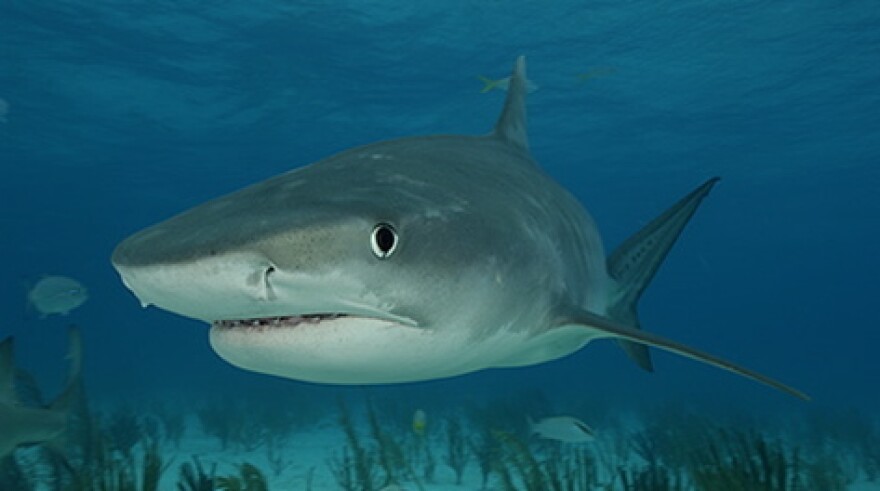The number of shark attacks on the east coast has increased, but experts say we shouldn’t blame them.
The problem, they claim, is the human population keeps growing, and more people are going to the beach.
And sharks are themselves under attack.
Marine experts report a dwindling population of sharks here and around the world. At the Institute of Zoology in London, research fellow Dr. David Jacoby says that one important threat is the international trade of shark fins and in particular the Chinese love of shark fin soup.
“That’s still a huge issue, I think, although we are beginning to see a younger generation not having to have this product at various banquets and weddings and things like that.”
The other big threat is fishermen catching sharks by mistake – finding them hooked on long lines set to catch other species. At the Virginia Institute of Marine Science, Rich Brill says that problem makes fishermen miserable.

“Because every hook that has a shark hanging on it does not have swordfish or a tuna – something they’re targeting, and they can tear up the gear, and they’re dangerous," Brill says, "and so they’d rather not deal with them at all.”
So VIMS is testing a small device that emits an electrical signal – interfering with the shark’s own system for finding prey. “If you were swimming and a shark was swimming close to you, it could detect your heartbeat the way an EKG does – the same idea,” according to Brill.
The device doesn’t shock the shark – it just confuses the animal and deters it from taking the bait.
“You can’t describe it for humans, because there is nothing equivalent. The closest we’d come is tickling," Brill says. "We’re not trying to electrocute them. We’re just trying to confuse them enough as they make that final approach and not bite.”
The device could save fishermen money spent on bait and damage to equipment while preventing injury to humans and saving shark lives.
This report, provided by Virginia Public Radio, was made possible with support from the Virginia Education Association.



